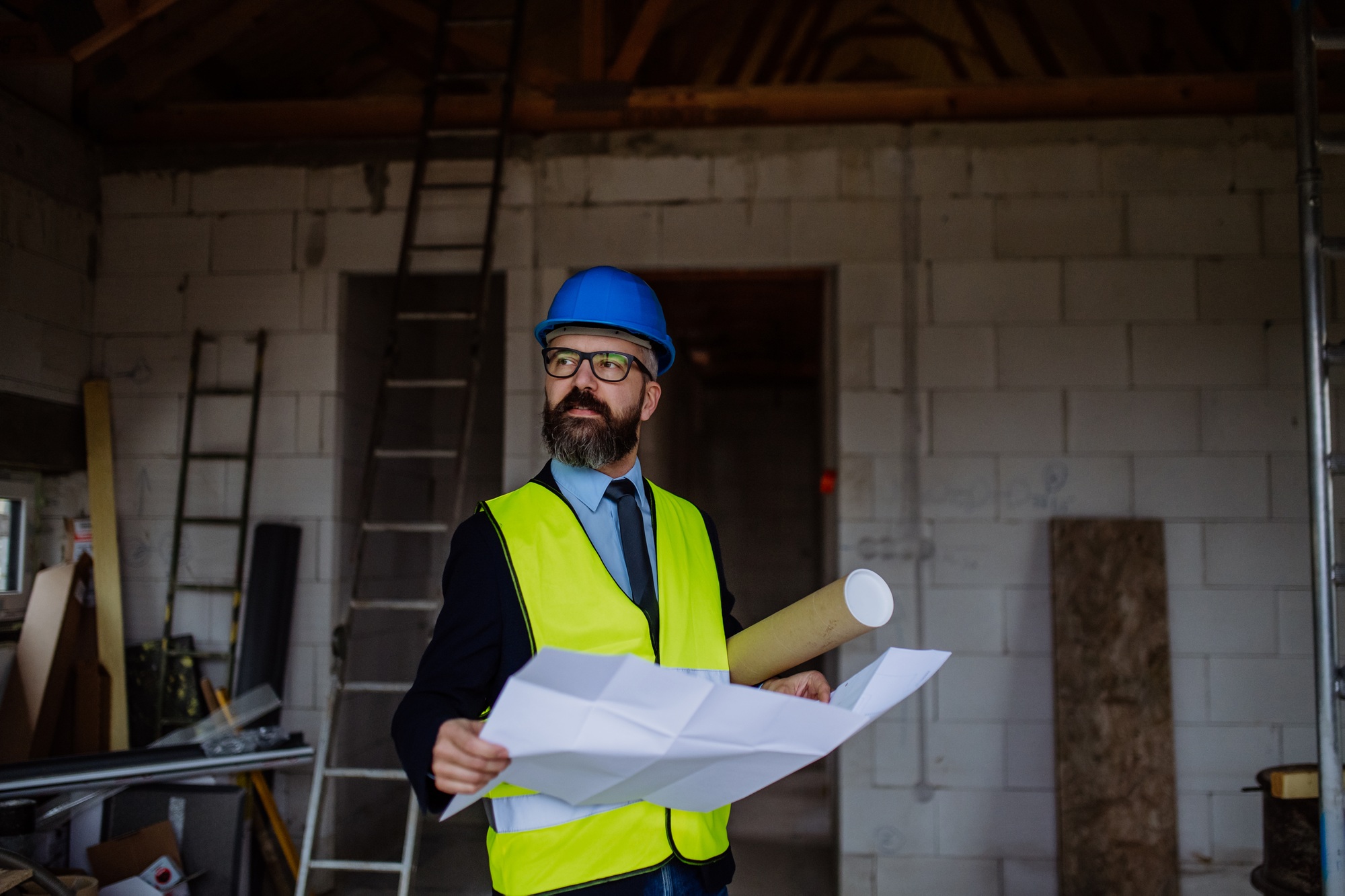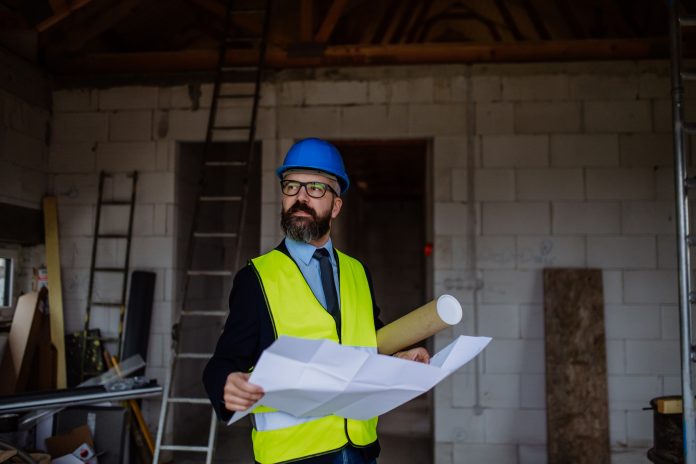Key Takeaways

- Understand House Flipping: House flipping is the process of purchasing undervalued properties, renovating them, and selling for a profit, making it a lucrative small business opportunity.
- Create a Business Plan: A comprehensive business plan, including market analysis and financial projections, is essential for guiding your house flipping venture and attracting potential investors.
- Research and Find Your Niche: Conduct thorough market research to identify profitable neighborhoods and property types, enhancing your chances of successful flips.
- Build a Reliable Team: Hire experienced real estate agents, contractors, and inspectors to ensure quality renovations and navigate the market effectively.
- Secure Appropriate Financing: Explore various financing options, including traditional and hard money loans, to fund your house flipping projects based on your specific needs.
- Implement Effective Marketing Strategies: Use comparative market analysis, staging, and online listings to enhance property visibility and appeal, eventually achieving quicker sales at competitive prices.
Are you ready to dive into the exciting world of house flipping? This lucrative venture offers not just the thrill of transforming properties but also the potential for significant profits. With the right approach, you can turn undervalued homes into stunning residences that attract buyers and maximize your returns.
Understanding House Flipping

House flipping involves purchasing properties, renovating them, and selling them for a profit. This small business venture appeals to many entrepreneurs due to its potential for high returns in a relatively short timeframe.
What Is House Flipping?
House flipping is a real estate investment strategy where you buy a property, improve it, and sell it quickly. You identify undervalued homes, make necessary renovations, and aim for a competitive sales price that exceeds your investment. Many successful flippers analyze market trends and understand property values to maximize profits, making this an attractive option for those looking to start a business in real estate.
Benefits of House Flipping
House flipping offers several benefits, making it an appealing choice for small business startups:
- High Profit Margins: Successful flips can yield profits of 10% to 30% or more, depending on the property’s location and condition.
- Speed of Returns: Flipping typically involves short-term investments, allowing quicker access to capital compared to long-term rentals.
- Skill Development: You gain valuable skills in project management, budgeting, and negotiation throughout the flipping process.
- Market Knowledge: Regularly buying and selling properties enhances your understanding of the real estate market, positioning you for future opportunities.
Engaging in house flipping not only boosts your entrepreneurial skills but also paves the way for more expansive real estate endeavors.
Getting Started

Starting a house flipping business involves careful planning and strategic decision-making. Focus on key steps that set the foundation for your success in this lucrative small business venture.
Write a Business Plan
Create a comprehensive business plan. This plan should encompass an executive summary, analysis of competition, market demand, operational details, financial projections, and roles of involved individuals. A well-structured plan helps estimate profits, secure investors, and maintain business focus.
Register Your Business
Register your business by obtaining an Employer Identification Number (EIN) from the IRS. This number is crucial for tax filings, obtaining business loans, and opening a business bank account or credit card.
Evaluating Your Finances
Assessing your finances is vital before diving into house flipping. Calculate your available capital, including personal savings and potential loans. Estimate your budget for purchasing and renovating properties, factoring in costs like labor, materials, and permits. Developing a financial strategy ensures you can handle unforeseen expenses and maintain a sustainable cash flow throughout the flipping process.
Finding Your Niche
Identifying your niche will enhance your chances of success in house flipping. Consider focusing on specific property types, such as single-family homes or condos, or target particular neighborhoods experiencing growth. Research local market trends and demand to determine where your efforts yield the highest returns. Narrowing your focus allows you to build expertise and develop tailored renovation strategies that attract buyers.
Researching the Market

Researching the market forms a crucial part of your house flipping startup. Understanding local real estate trends and identifying profitable neighborhoods sets the foundation for your business success.
Analyzing Local Real Estate Trends
You must analyze local real estate trends to make informed decisions. Examine historical sales data and current price trends to determine areas with appreciation potential. Look for neighborhoods experiencing growth, where recent sales indicate rising property values. Strong economic indicators, like job growth and low unemployment rates, also signal favorable conditions for house flipping. Cities in Texas, Florida, and Arizona demonstrate robust job markets, contributing to profitable flipping opportunities.
Identifying Profitable Neighborhoods
Identifying profitable neighborhoods involves a multi-faceted approach. You should evaluate factors like crime rates, school quality, and community amenities. Focus on neighborhoods with active buyer interest and renovation projects underway. Utilize real estate tools and databases to compare property prices and sales trends across different areas. Target neighborhoods where buying low and selling high is achievable. Prioritizing these neighborhoods increases your chances of creating a successful small business in house flipping.
Building Your Team

Building a strong team is vital for your house flipping business’s success. Key team members enhance your startup’s efficiency and effectiveness in achieving profitable projects.
Finding a Real Estate Agent
Finding the right real estate agent is essential for navigating the house flipping market. An experienced agent understands local trends, pricing strategies, and negotiation tactics. They’ll provide insights on properties with high potential for appreciation, which is crucial for maximizing your investment. Look for agents with a proven track record, particularly in distressed properties or specific neighborhoods you’re targeting.
Hiring Contractors and Inspectors
Hiring competent contractors and inspectors is critical for ensuring quality renovations and compliance with local regulations. Contractors should have a reputation for reliability and skill, as they execute the vision for transforming properties. Verification of credentials and reviews helps you make informed decisions. Inspectors provide essential evaluations of property conditions, identifying issues that may impact your project’s budget and timeline. Engaging qualified personnel mitigates risks and enhances your house flipping process.
Securing Financing

Securing financing is essential for launching your house flipping business. Various loan options exist, and understanding their implications can impact your success.
Traditional Loans vs. Hard Money Loans
Traditional loans can provide funding for your house flipping projects, but they come with challenges. Banks typically require a strong credit history and a significant down payment. The approval process mimics that of obtaining a conventional mortgage, making it difficult to secure funding for short-term fix-and-flip projects.
Hard money loans represent a more accessible financing option for house flippers. These loans focus primarily on the property’s value and after-repair value (ARV), disregarding the borrower’s credit score. Hard money lenders assess the collateral’s worth, offering flexibility for those who lack cash reserves or face credit issues. This financing method often ensures quick access to funds, allowing you to capitalize on promising opportunities in the real estate market.
Creating a Budget for Your First Flip
Creating a budget is crucial for your first house flip. Your budget should include property acquisition costs, renovation expenses, and contingency funds for unexpected issues. To ensure financial success, itemize each expense, estimating costs based on your market research and historical renovation data.
Building a budget encourages disciplined spending and helps prevent overshooting your financial limits. Aim to allocate around 20% of your budget for contingencies to manage unforeseen expenses. Tracking expenses during the renovation helps maintain budget adherence and maximizes your profit margin when selling the flipped property.
Purchasing Your First Property

Purchasing your first property is a crucial step in starting a house flipping business. Success hinges on thorough market research, financing, and strategic negotiation tactics.
How to Find a Good Deal
Finding a good deal requires diligent market analysis. Search for properties in desirable neighborhoods, focusing on those that need cosmetic upgrades rather than extensive structural changes. Monitor online real estate platforms and local listings for properties listed below market value. Attend real estate auctions, estate sales, and foreclosure events, as they often yield undervalued opportunities. Network with local real estate agents and other investors to discover off-market deals. By establishing connections, you increase your chances of accessing exclusive listings.
Negotiation Strategies
Negotiating effectively can secure the best possible price for your property purchase. Start by gathering data on comparable sales, focusing on similar properties within the area. Use this information to establish a reasonable offer below the asking price. Highlight any necessary repairs or issues during negotiations to justify your offer. Be prepared to walk away if the deal doesn’t meet your financial goals, creating leverage in the discussion. Establish rapport with the seller to foster a favorable atmosphere, which can lead to more cooperative negotiations. Utilize these strategies to enhance your position and ensure a smart investment in your house flipping journey.
Renovating the Property
Renovating a property forms a vital part of starting your house flipping business. Strategic renovations not only enhance the property’s appeal but also maximize potential returns.
Planning Your Renovation
Planning your renovation involves prioritizing projects with high return on investment (ROI). Focus on improvements that appeal to prospective buyers. Key areas include:
- Painting: Fresh paint on both interior and exterior surfaces boosts aesthetic value, creating a positive first impression.
- Key System Upgrades: Upgrade electrical, plumbing, and HVAC systems for increased functionality and safety, which buyers often value.
- Bath and Kitchen Upgrades: These spaces significantly influence purchasing decisions. Modernizing bathrooms and kitchens can lead to higher sale prices.
Create a clear renovation timeline, set specific goals, and allocate resources wisely. Distributing tasks effectively ensures a smoother renovation process.
Keeping Costs Under Control
Keeping costs under control is crucial in house flipping. Establishing a budget helps avoid overspending. Consider these strategies:
- Itemizing Expenses: Detail all costs, including materials, labor, and permits. A thorough breakdown promotes transparency and accountability.
- Contingency Fund: Reserve about 20% of your budget for unexpected costs. This cushion prevents financial strain throughout renovations.
- Comparative Research: Investigate prices for materials and labor in your market. Obtain multiple quotes from contractors, ensuring competitive pricing.
Making informed financial decisions ultimately enhances your startup’s profitability. Take control of renovation costs while maximizing quality to increase your chances of success in the house flipping business.
Selling the Property
Selling the property requires effective strategies to maximize returns. Proper marketing and pricing can lead to quicker sales at competitive prices, which benefits your small business venture.
Marketing Strategies for Your Flip
- Conduct a Comparative Market Analysis (CMA) to set the right price for your flipped property. Evaluate prices of similar homes in the area to ensure your price covers renovation costs, holding costs, and desired profit margins. Avoid overpricing to attract potential buyers effectively.
- Stage the property to highlight its best features. Staging enhances appeal and allows buyers to envision themselves living in the space. Invest in furniture and decorations that reflect current trends. A well-staged home can reduce time on the market and increase the selling price.
- Utilize online platforms for listings. High-quality photos and detailed descriptions can capture the attention of potential buyers. Leverage social media to expand your reach and create engagement with your audience.
- Implement traditional marketing methods. Use yard signs, flyers, and open houses as additional ways to connect with prospective buyers. Engage local communities and networks to spread the word about your flip.
Working with Real Estate Agents
- Partner with experienced real estate agents who understand the local market. Agents provide invaluable insights into pricing strategies and buyer preferences, helping your small business gain a competitive edge.
- Choose agents with a proven track record in selling flipped properties. Their expertise can guide exposure and marketing efforts, ensuring you attract the right buyers.
- Negotiate commission rates. Many real estate agents work on commission, so ensure that the agreement aligns with your budget and expected profit margins. A lower commission can boost returns on your flip.
- Collaborate closely with your agents. Maintain open communication about your goals and expectations. Engaging in regular updates can result in better-targeted marketing strategies and ultimately lead to successful sales.
Conclusion
Starting a house flipping business can be a rewarding journey filled with potential for financial success. By following the steps outlined and staying committed to your goals you can navigate the complexities of this industry.
Remember to invest time in research and planning as these elements lay the foundation for your success. Surrounding yourself with a reliable team and leveraging their expertise will enhance your ability to make informed decisions.
As you dive into your first flip keep your focus on quality renovations and effective marketing strategies. With dedication and a strategic approach you’ll be well on your way to transforming properties and realizing your profit potential. Embrace the challenges and enjoy the process of turning houses into homes.
Frequently Asked Questions
What is house flipping?
House flipping involves buying undervalued properties, renovating them, and selling them at a profit. It can be a rewarding business venture for those willing to invest time and effort in the process.
How do I start house flipping?
Begin by creating a comprehensive business plan that outlines market research, financial assessments, and a clear strategy for renovation and sales. Register your business for tax purposes and secure financing.
What are the financial considerations in house flipping?
Important financial aspects include assessing available capital, creating a budget covering acquisition and renovation costs, and deciding on financing options, such as traditional or hard money loans.
How do I find properties to flip?
Conduct market research to identify undervalued neighborhoods with appreciation potential. Analyze sales data, current price trends, and community amenities to pinpoint properties worth investing in.
What renovations should I focus on?
Key renovations that enhance property appeal include painting, upgrading bathrooms and kitchens, and improving essential systems like plumbing and electrical. Strategic renovations can significantly boost your selling price.
How do I market my flipped property?
Create effective marketing strategies, including a Comparative Market Analysis (CMA) to set the right price, staging the home for showings, and utilizing both online platforms and traditional methods to attract buyers.
Why do I need a real estate team?
Building a strong team of professionals, including real estate agents and contractors, ensures quality renovations and compliance with local regulations, enhancing your project’s efficiency and effectiveness.
How can I ensure profitable sales?
Maintain open communication with your real estate agent, utilize marketing strategies effectively, and price your property competitively based on market trends to maximize your returns during sales.
Image Via Envato: halfpoint, gpointstudio, innasap, JoPanwatD, anontae2522, LightFieldStudios, dolgachov



